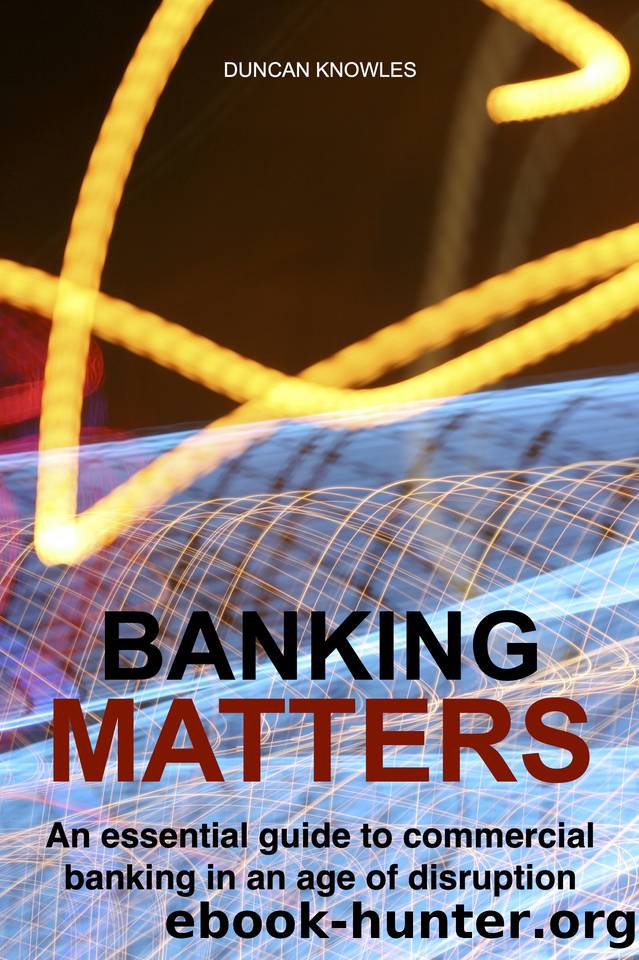Banking Matters: An essential guide to commercial banking in an age of disruption by Knowles Duncan

Author:Knowles, Duncan [Knowles, Duncan]
Language: eng
Format: epub
Published: 2021-04-07T16:00:00+00:00
These operational risk and control activities are often described as forming âthree lines of defenceâ. The first line of defence are those employees and teams who operate the controls and on whose business processes any risk event would impact. The first line of defence includes not only the operation of controls, but also activities to gain assurance that these controls remain effective.
The second line of defence are specialist risk management functions who assist with the design of controls and provide oversight of their operation and effectiveness. The third line of defence is internal audit, who conduct independent testing of the overall risk and control environment to provide assurance that the bank is operating within its risk appetite.
As risk events occur, reviews take place, or controls are tested, the outcome is used to improve the risk and control environment, either by enhancing control, or by reducing the cost of control. For significant events or control failures, these enhancements will be implemented immediately. In less critical situations, they may simply provide input into the next iteration of risk and control assessment.
Managing other risks
Although the definition of operational risk is broad, it is not all encompassing. In addition to credit, market and operational risks, banks remain exposed to further risks that they must manage. Liquidity and funding risks are examples of these, with their management having been considered earlier. Two other risks are of particular importance: reputational risk and strategic risk.
Banking as a business relies heavily on trust, which is itself founded on the strength of a bankâs reputation. It takes many years for a bank to build a strong reputation for probity, professionalism, expertise and soundness; but only a small number of negative news articles to undermine this. âReputational riskâ is the risk to a bankâs reputation arising from its business activities. Banks cannot eliminate reputational risk, but a bankâs executives should be aware of the potential impact of their actions on the bankâs reputation, and should carefully weigh this in their decision making.
As with any other business, banks make and execute strategic plans, trying to position themselves in the right products, services, segments and markets, with the right customer propositions for long-term success. Whether through poor planning or unfortunate circumstances, banksâ strategies can be flawed, resulting in long-term decline of the business. Managing such âstrategic riskâ is a core responsibility of a bankâs senior executives.
Download
This site does not store any files on its server. We only index and link to content provided by other sites. Please contact the content providers to delete copyright contents if any and email us, we'll remove relevant links or contents immediately.
International Integration of the Brazilian Economy by Elias C. Grivoyannis(110108)
The Radium Girls by Kate Moore(12018)
Turbulence by E. J. Noyes(8040)
Nudge - Improving Decisions about Health, Wealth, and Happiness by Thaler Sunstein(7692)
The Black Swan by Nassim Nicholas Taleb(7107)
Rich Dad Poor Dad by Robert T. Kiyosaki(6612)
Pioneering Portfolio Management by David F. Swensen(6288)
Man-made Catastrophes and Risk Information Concealment by Dmitry Chernov & Didier Sornette(6005)
Zero to One by Peter Thiel(5786)
Secrecy World by Jake Bernstein(4741)
Millionaire: The Philanderer, Gambler, and Duelist Who Invented Modern Finance by Janet Gleeson(4465)
The Age of Surveillance Capitalism by Shoshana Zuboff(4275)
Skin in the Game by Nassim Nicholas Taleb(4239)
The Money Culture by Michael Lewis(4198)
Bullshit Jobs by David Graeber(4179)
Skin in the Game: Hidden Asymmetries in Daily Life by Nassim Nicholas Taleb(3991)
The Dhandho Investor by Mohnish Pabrai(3759)
The Wisdom of Finance by Mihir Desai(3735)
Blockchain Basics by Daniel Drescher(3574)
